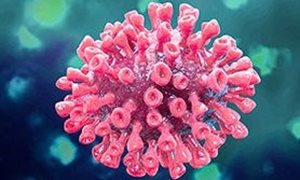 The coming five years, partners from the Netherlands Centre for One Health, will investigate how the Netherlands can be better prepared for infectious diseases transmitted by mosquitoes.
The coming five years, partners from the Netherlands Centre for One Health, will investigate how the Netherlands can be better prepared for infectious diseases transmitted by mosquitoes.
Listen to the interview (12 June 2019) of Pascal Miesen on the Dutch National Radio here (7.42 - 7.46.hrs.)
Watch the interview of Pascal Miesen on the Dutch National TV here.
The Dutch Research Council (NWO) has awarded almost 9 million euros for this research. This amount has been supplemented to 10 million euros in contributions from seven collaborating public organisations. The multidisciplinary character of the collaboration, in which citizen science will play a role, is unique.
Outbreaks of (new) infectious diseases in humans and animals are becoming more prevalent worldwide. That is due to various factors, such as population growth, international trade, international travel and climate change. In the Netherlands, a relatively large number of people, livestock and animals live near each other. In combination with our water-rich landscape and busy international trade and travel, it makes us vulnerable to outbreaks of infectious diseases.
Vector-borne diseases
The team will mainly focus on vector-borne diseases: infectious diseases transmitted by insects such as mosquitoes. As a result of climate change, exotic mosquito species are becoming more common in the Netherlands. But under the right conditions, mosquito species native to the Netherlands can transmit (tropical) viruses too. The recent outbreak of the usutu virus (the “blackbird disease”) among birds demonstrates the importance of early preparedness for such diseases. That applies not only to the Netherlands but also the Dutch Caribbean and the rest of Europe.
Outbreaks can arise due to a combination of factors. Over the next five years, 25 PhD researchers will focus on four themes that influence the development of outbreaks:
- changes in the climate,
- changes in water management,
- changes in agricultural methods, and
- changes concerning international travel and import risks.
Citizen science
During the research, the team will collaborate with various scientific bodies and make use of research results from other projects. These will include citizen science projects: initiatives in which citizens and high school pupils are involved. For example, they will provide research data about birds, mosquitoes and water or use travel apps such as the Municipal Health Services’ “GGD reist mee” and the “ZIeKA-monitor”.
Partners
Coordination: Erasmus MC
Collaborative partners: Avans University of Applied Sciences, Leiden University Medical Center, Leiden University/Naturalis, Netherlands Institute of Ecology (NIOO-KNAW), Radboud University Medical Centre, University Medical Center Utrecht, Utrecht University, Wageningen University & Research
Co-funding partners: Deltares, National Institute for Public Health and the Environment (RIVM), Royal Netherlands Meteorological Institute (KNMI), Red Cross Blood Bank Foundation Curacao, Sanquin, Technasium Foundation, Centre for Monitoring of Vectors (CMV)
International collaborating partner CEAB-CSIC: Centre for Advanced Studies of Blanes (CEAB) a research institute within the Superior Council of Scientific Investigations (CSIC)
More information: link.
Related news items

Rebecca Halbach receives idea generator grant to fight mosquito transmitted viruses
8 July 2020Rebecca Halbach and Pascal Miesen have investigated in a collaborative project whether the treatment of mosquitoes with antiviral drugs can prevent the transmission of mosquito-transmitted viral diseases.
go to page
Invasive fungal infections in influenza and COVID-19
8 July 2020 The Aspergillus fungus is found in the lungs of many COVID patients. A parallel occurs with influenza patients, who often develop a serious fungal infection. Although such a serious fungal infection seems to occur less frequently in COVID-patients, alertness remains necessary, go to page
First clinical trial with genetically modified malaria vaccine completed
22 May 2020 In an innovative study, Radboudumc and LUMC jointly tested a candidate vaccine based on a genetically weakened malaria parasite. The results of this clinical trial, published in Science Translational Medicine, show that the vaccine is safe and elicits a defense response against a malaria infection. go to page
New step in the development of a vaccine against malaria
22 May 2020 A new vaccine based on rodent malaria parasites achieved a 95% reduction in infection of the liver in humans. An international consortium publishes the results in Science Translational Medicine. go to page
Stuttering DNA orchestrates the start of the mosquito’s life
9 April 2020 A certain type of junk DNA that is found in mosquitoes and which repeats itself dozens of times, known as ‘satellite DNA’, has now been shown to play an essential role in the early development of mosquito embryos. Ronald van Rij and colleagues published their findings in Nature. go to page
NWO Open Competition Domain Science - XS grant for Ronald van Rij and Jenny van der Wijst
21 January 2020NWO Domain Science has awarded Ronald van Rij, theme Infectious diseases and global health and Jennny van der Wijst, theme Renal disorders an XS grant. The XS category emphatically strives to encourage curiosity-driven and bold research involving a relatively quick analysis of a promising idea.
go to page